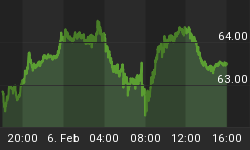Even though currently there is no concise definition of the “metaverse”, the concept has been quickly gaining mainstream attention with more than a few big-name brands entering the ecosystem.
According to Morgan Stanley, the metaverse is a concept that includes the construction of an alternate universe where individuals can model their image however they like and also perform real-life tasks such as buying things, gaming with friends, and other activities.
The metaverse also translates to a digital economy, where users can create, buy, and sell goods.
“In fact, advertising and e-commerce represent an $8.3 trillion opportunity to monetize U.S. consumer spending on everything from games and music, to apparel, automobiles and real estate,” Morgan Stanley said in its “Metaverse: More Evolutionary than Revolutionary” research paper.
Citi recently predicted an even higher number, saying that, with some 5 billion customers, the metaverse economy could be worth between $8 trillion and $13 trillion by 2030.
With those numbers in mind, many industries, even outside the obvious tech giants, are looking for ways to benefit from this newish technology. As new and difficult to grasp as it is, the entire metaverse market cap is currently estimated at nearly $37 billion.
Late last year, Facebook’s CEO Mark Zuckerberg said he believed the metaverse was the future of the internet and of his trillion-dollar company.
Announcing the company's name change to Meta, Zuckerberg said this was "the next evolution of social connection…3D spaces where you can socialize, learn, collaborate and play in ways that go beyond what we can imagine."
The company owns three of the biggest social media apps used by billions of people, Facebook, Instagram, and WhatsApp, giving Meta a decent advantage.
But others are jumping on this speeding train, too, including Roblox, Nvidia, and Microsoft, all of whom have been building out virtual worlds with virtual or augmented reality tech. In January, Microsoft announced a $69 billion deal to buy gaming giant Activision Blizzard.
“This acquisition will accelerate the growth in Microsoft’s gaming business across mobile, PC, console, and cloud and will provide building blocks for the metaverse,” the company said in the press release.
It also goes beyond the tech universe.
According to Kunal Lunawat from Agya Ventures, a fund focused on real estate tech, retail will encounter big opportunities for expansion in the metaverse conversational bridge between the virtual and real worlds.
Some retail companies are already exploring the digital world, mostly to satisfy the upcoming major shopping force, Generation Z, which is already dictating fashion and shopping and embracing virtual clothing, either for gaming or social media purposes.
“This whole concept of co-creation and co-building and having customers take more ownership of the brand itself is such a powerful construct. I think the metaverse will finally give it reality,” Lunawat told Yahoo Finance.
Some major brands such as Adidas, L’Oréal, Gucci, Louis Vuitton and others have already jumped into the metaverse, where they see the potential to render online shopping more engaging and useful–and ultimately, more profitable.
















